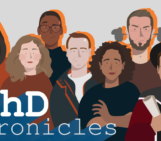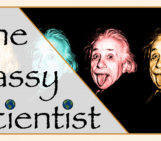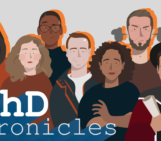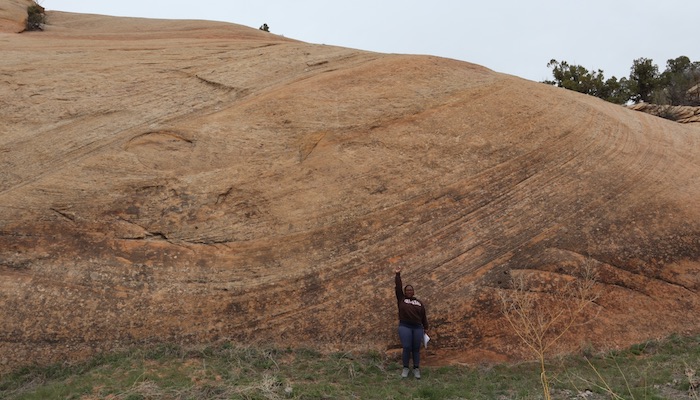
It can be tough realising you’re not on the path you want to be on. This week, we have Leiaka Welcome from the Colorado School of Mines showing us how a change of heart led her to start her PhD journey.
Currently on social media (Instagram Reel, TikTok), there is a video trend where users are editing a video of themselves in a scenario with an audio sound where you can hear a classic record scratch and the song Baba O’Riley by The Who, followed by the words, “Yep, that’s me. You’re probably wondering how I ended up in this situation.” And truth be told, this social media trend genuinely summarises how I feel as a graduate student who’s navigating a revised PhD journey during a pandemic.
By now, I have hopefully aroused your curiosity regarding who exactly I am and what I mean by the revised PhD journey. So allow me to use this opportunity to introduce myself, and share the cliff notes from some of the more important lessons I have learned from my PhD journey to date. Hopefully, some of these brief anecdotes may be helpful to fellow graduate students, early-career professionals, or anyone in the midst of starting over.
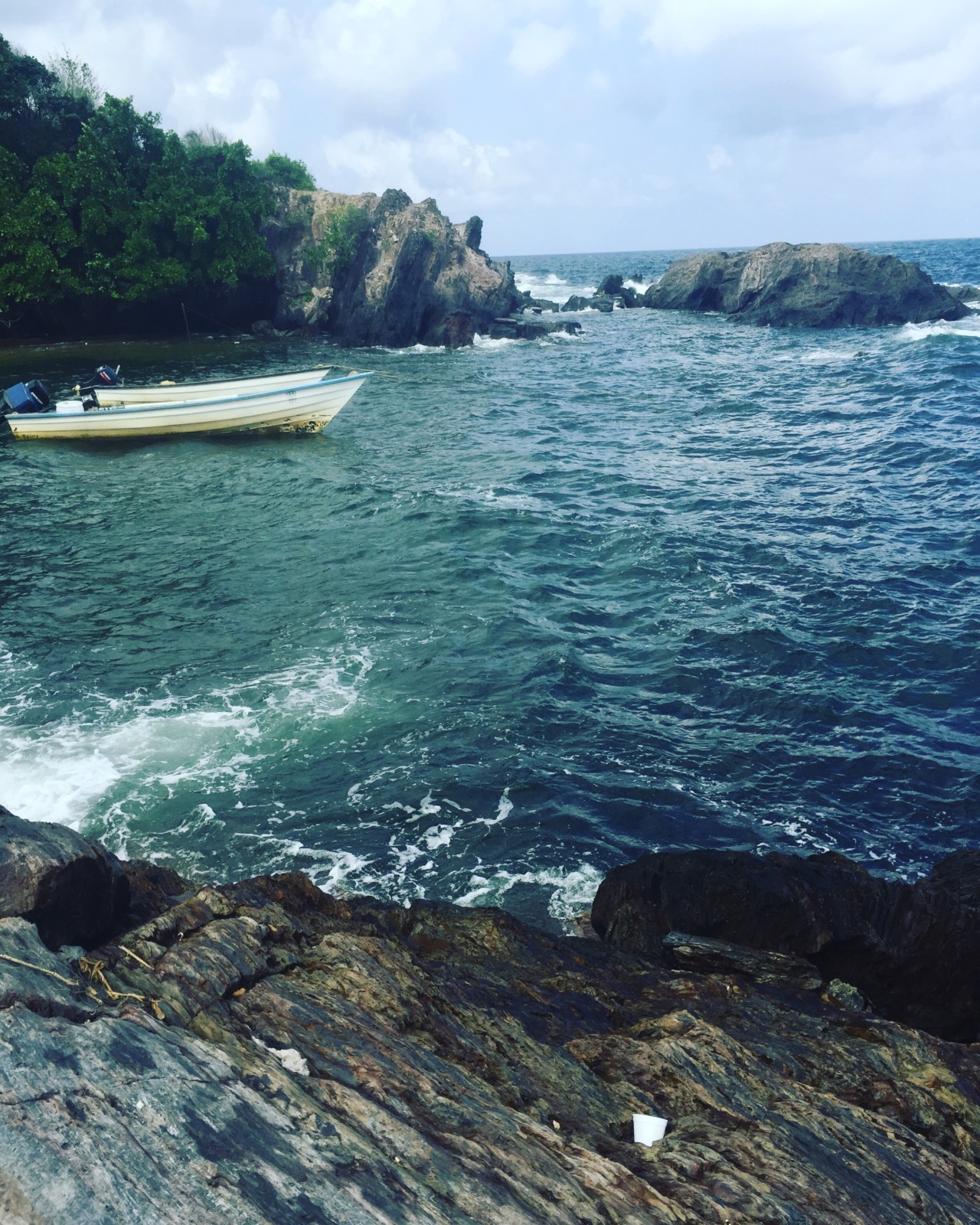
Figure 2: Along the Toco main Road in east, Trinidad, west Indies some of the oldest rocks can be seen. Low-grade metamorphosed phyllite, limestone and quartzite (late Jurassic and quartzite, phyllite, shale and limestone (Cretaceous).
I am Leiaka Welcome, now pursuing a doctorate in geology with a graduate certificate in Humanitarian Engineering at the Colorado School of Mines. I was born in the twin-island Republic of Trinidad and Tobago, West Indies, where weekend drives as a child through the fields of Palo Seco, Trinidad, peppered with ice cream, and conversations with my parents about “black gold” ignited my curiosity and spurred my love of all things geology. Because of my Caribbean heritage, I also consider myself an adventure seeker who likes sharing my West Indian culture visually and verbally by documenting travel, plants, Carnival, and tea. This versatile mindset has me fascinated by all geoscience-related topics, from physical, process-based, and historical geoscience to policy, cultural and science communication. Truthfully, it wasn’t until Autumn 2020, mid-pandemic I actually truly began to on my versatility as an Earth Scientist or even shared my non-academic related hobbies.
My research entailed assessing the stratigraphic architecture of arid continental rifts, in order to understand the complexity of rift basin fill, and further detail the contribution of tectonics and climate on a regional and global scale. Maybe because I was isolated, dealing with academic setbacks and imposter syndrome, or the fear of the early unknowns related to Covid-19 and all the injustices occurring and marketed as trauma and political porn. But something in me, my mindset, and my academic desires officially shifted. The once, almost inaudible whispers that were supposed to reassure me that I was meant to do a PhD finally grew into confident shouts, demanding me to claim my PhD journey. Those internal voices urged me to let go of my hidden struggle of pursuing an advanced degree in a field that has not always been welcoming or without challenges for scholars who bear resemblance or nationality to me and figure out how to move forward on my terms. I had to be honest with myself that in regards to my PhD I am the type of student that needs to see the greater good, the student that has to find a way to combine academic and personal interests. Truthfully this realisation came at an opportune time as I was also seeking to diversify myself as a geoscientist and create space for others who may identify with me.
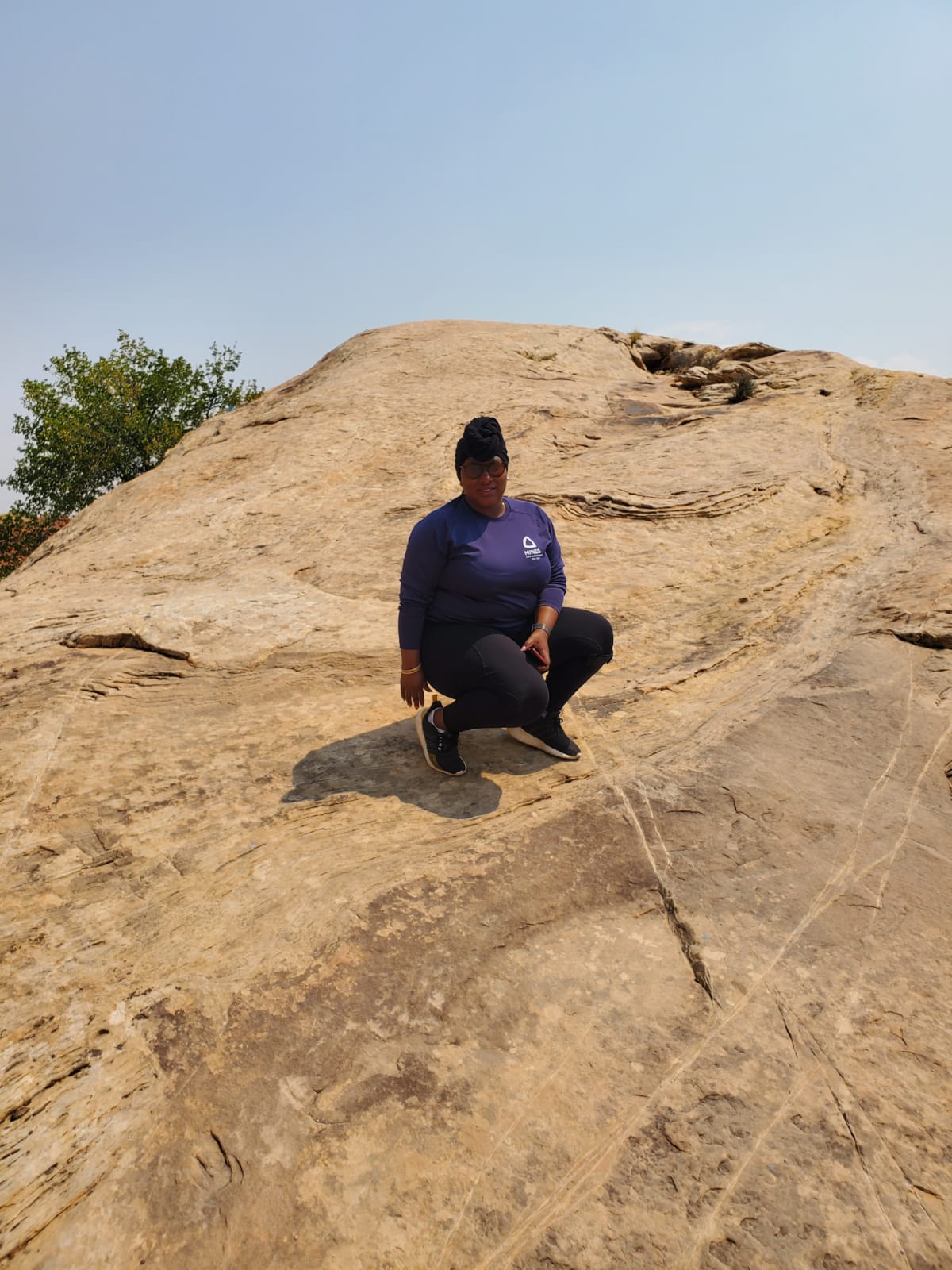
Figure 3: Hiking around Arches National Park, mid pandemic, renewing my love for the field and all things sandstone!
Once I became comfortable owning who I was as a scholar and what I wanted my academic journey to entail, I had the respective conversation with my (supportive) advisor and the academic village I subsequently carved for myself and began to move forward. Pursuing this transition has required honesty, unexpected personal and financial sacrifices, and extreme mental care. It was no easy feat, and I am by no means near the finish line, but I have clarity! Today, I am delighted to share that my revised research focus allows me to integrate geology and community-based research to investigate fluvial deposits in arid continental rifts (ACR). My research is focused on detailing the facies, geomorphology, and stratigraphic relationships in rifts and how the respective processes have influenced the basins’ community architecture.
This work stems from my observations on how geoscientists engage and communicate geology, geological processes and hazard to underrepresented and underserved communities. Consequently, one of my overarching goals as an Earth Scientist is to comprehend better, through cross-disciplinary relationships, the geological impacts on society (underrepresented communities like the indigenous community). As I genuinely believe such a research approach will help us in the field to make better links between sedimentology and society and further understand why collaborations across disciplines are essential. Consequently, I have begun to identify myself more frequently as an Earth Scientist and even a Social Sedimentologist.
As I get ready to begin another semester, I admit it has indeed been an incredible and slightly unconventional journey. While I continue to learn so much about myself as a geoscientist and a person, here are a few things I’ve learned along the way:
- Mistakes happen, so remember they don’t define you. Learn, choose growth and move forward.
- It’s essential to let go of fear, the fear of being wrong, the fear of judgment, and most importantly, the fear of asking for help.
- Motivation and desire will not complete this journey, but preparation, focus, and structure will!
- No matter what anyone says or how you may internally feel, ask for help, speak up and say when you are confused.
- Even if no one in the room looks or speaks like you, ask for clarification or ask the speaker to repeat themselves when you don’t understand.
- Do not be afraid to pronounce, correct people, and spell your name correctly. When you let people address you in ways that you are not comfortable you begin to lose a part of your identity.
- Isolation can academically cripple you. In spaces or institutions where the resources aren’t available or welcoming, create your own/seek external help.
- It is okay to rest. Take care of your mental and physical health.
- Communicate with your advisor, committee, peers, and external people who offer help. It can be intimidating, but it often brings the clarity needed.
- A good PhD is a completed PhD, so progress over perfection.



